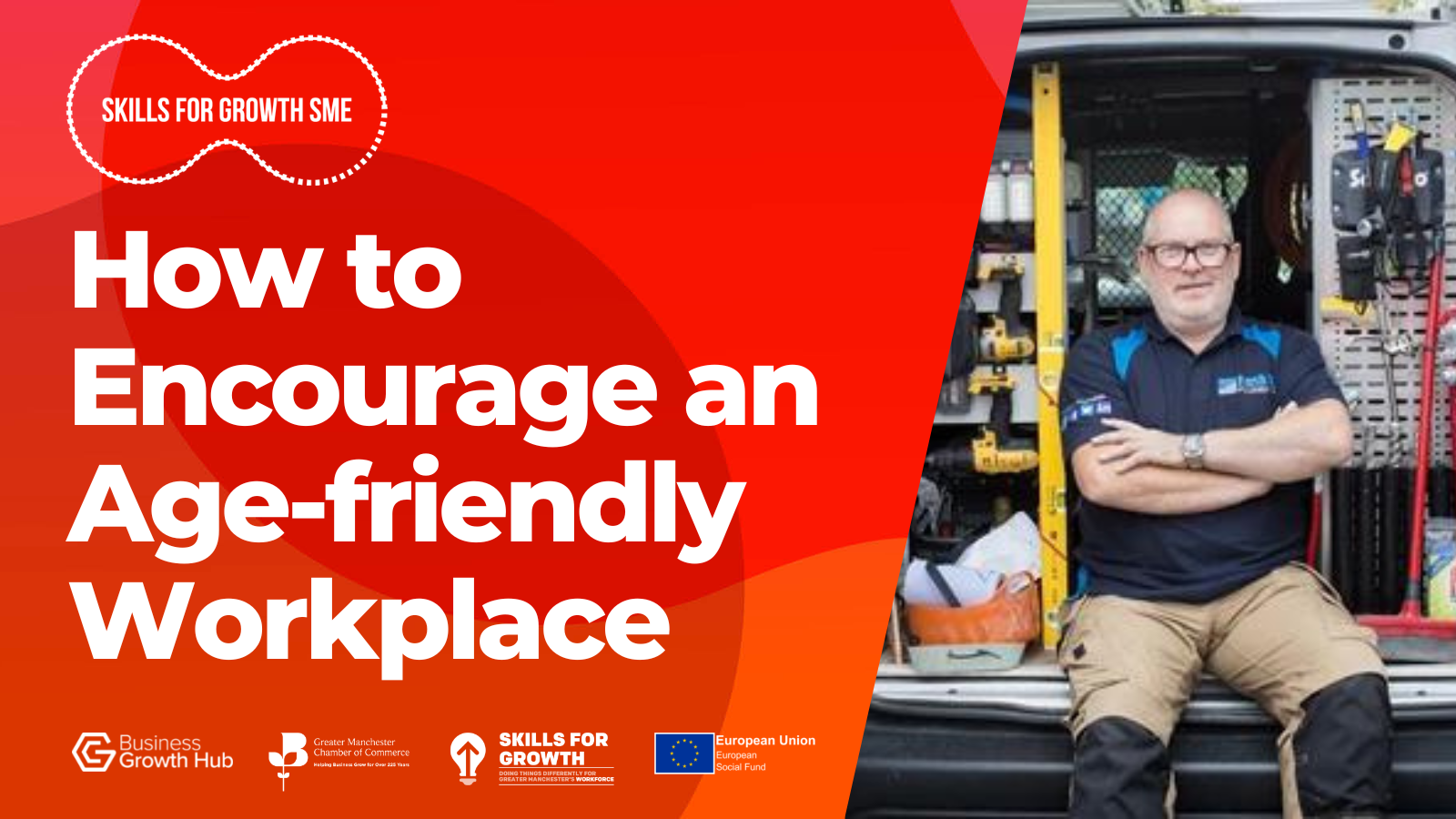Marketing Apprentice on the Skills for Growth - SME Support programme.
How to Encourage an Age-friendly Workplace
Instead of losing older employees and the knowledge and experience they have gained over the course of their career, learn how to manage them more effectively to keep them happy and motivated at work. The UK has seen a million people, mostly in their 50s, leave work since the start of the COVID 19 outbreak. This has caused fear of wage inflation from John Lewis Chair Dame Sharon White. She believes this leads to an increase in job vacancies, and employers who want to attract and retain staff are under pressure to lift wages, which fuels inflation. With retirement being the most popular reason for over 50’s no longer working, it seems that many companies are not doing enough to keep older employees happy and motivated to continue working.
Different Ages have Different Needs
Much like a 20-year-old and a 35-year-old are at completely different stages of their career, a 50-year-old and a 70-year-old will also have different needs and goals. You may think of all employees over 55 being at retirement age and therefore try to manage them the same, but there are three sub-groups of people aged over 55. These groups are:
- Those getting ready to retire (55-62)
- At retirement age but still working (62-70)
- Older workers who choose to keep working either to keep active or out of necessity (70+)
Each group needs catering to differently and therefore requires their own management styles.
Acknowledge their Experience
Older workforces have amassed decades of experience not just from work, but from their personal lives. This means they have learned many valuable lessons along the way, lessons that can be taught to other employees to improve how they handle certain situations. These lessons can be priceless for your business as they can be spread around the workforce, therefore improving the way every employee works. Acknowledge your older workforce and give them the opportunity to teach and mentor other employees.
Keep Motivation High
Motivation is a key factor in keeping older employees happy. Where younger employees may seek the opportunity for advancement in their careers for motivation, this may not apply as much to older employees. Give them new challenges, so they have a varied workload. Reward them when they have done a good job by making sure they know that their work and knowledge is valued. Get them involved with team activity days whether that be a quiz or a day at the bowling alley. Adopting this practice will help to boost morale.
Be Flexible
Your older workforce may be more likely to want to work less hours per week and be able to spend more time at home with their families. To meet these demands, you will need to be flexible. This will help the older workforce to stay motivated. Keep in mind however that some employees will prefer to work as much as everyone else, and offering them flexible working hours may not be a motivating factor to them.
Set up a Mentor System
Having a mentor system comes with many benefits such as:
- The mentee learns valuable skills
- The mentor can also learn from the mentee
- It develops a multi-generational culture
- It creates networking opportunities
- Can reduce stress and anxiety
Utilise your older employees bank of knowledge and experience to upskill your workforce. Having a mentor system will benefit your entire business from top to bottom and will give older employees a stronger feeling of purpose at work.
Everyone is different, and what makes one person happy, may not work with someone else. Whilst these tips don’t guarantee a happier older workforce, they are certainly a step in the right direction.
Skills for Growth – SME Support can help you upskill your employees and examine your organisational structure to identify any skills gaps within your team. Click here to apply for our fully funded support service or call 0161 237 4444 and speak to a Skills Coach today.


